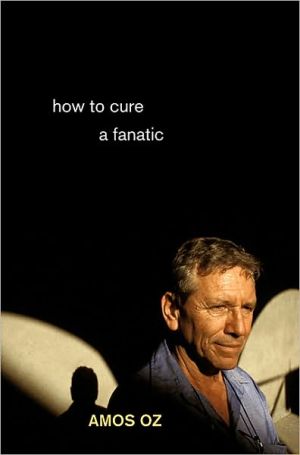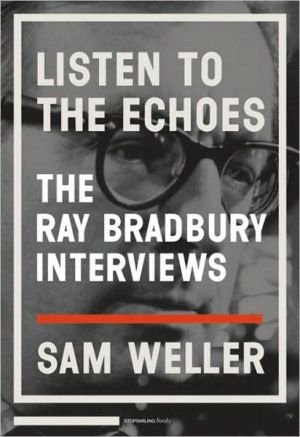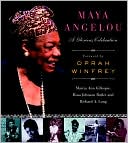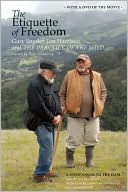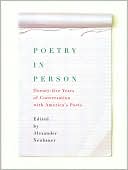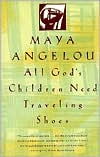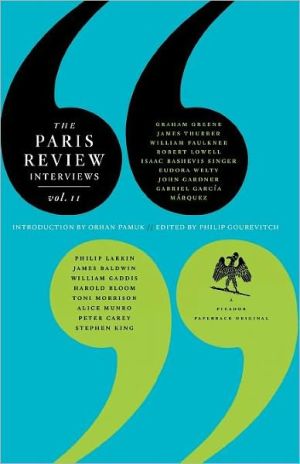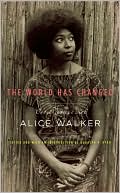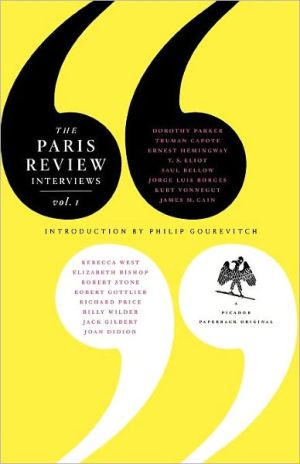How to Cure a Fanatic
Internationally acclaimed novelist Amos Oz grew up in war-torn Jerusalem, where as a boy he witnessed firsthand the poisonous consequences of fanaticism. In two concise, powerful essays, the award-winning author offers unique insight into the true nature of fanaticism and proposes a reasoned and respectful approach to resolving the Israeli Palestinian conflict. As an added feature, he comments on contemporary issues—the Gaza pullout, Yasser Arafat's death, and the war in Iraq—in an extended...
Search in google:
"Amos Oz is the voice of sanity coming out of confusion."--Nadine Gordimer, Nobel Prize-winning author"The special nature of these two lucid, thoughtful essays lies in their compelling argumentation backed by the singular authority of the writer."--Ira Katznelson, Columbia UniversityPublishers WeeklyOz, one of Israel's foremost novelists and also a leader in the peace movement, sets up opposite poles-pragmatism and fanaticism-in the two essays in this thin (both in size and content) volume. Pragmatism is Oz's path to peace between Israelis and Palestinians. Writing in ardent, articulate and informal prose (the essays originated as lectures), Oz (A Tale of Love and Darkness) writes that this conflict is a straightforward, though intense, battle over real estate in which both sides have legitimate claims to one tiny piece of land. And the necessary compromise-in the form of two states, "divided roughly according to demographic realities"-will be deeply painful for both, the loss of land a kind of amputation, in Oz's words. Also crucial to peace, in Oz's view, is providing homes and jobs for the residents of the squalid Palestinian refugee camps. But how to convince the anti-compromise fanatics on both sides? On this score, Oz is less satisfying, suggesting the remedial value of humor and imagination (i.e., learning to really see the other). The book's third part, an interview with Princeton University Press's Brigitta van Rheinberg, is largely redundant, leaving this feeling more like a padded pamphlet than a book, despite the virtues of Oz's perspective. (Mar.) Copyright 2006 Reed Business Information.
How to Cure a Fanatic\ \ By Amos Oz \ Princeton University Press\ Princeton University Press\ All right reserved.\ ISBN: 0-691-12669-0 \ \ \ Chapter One\ BETWEEN RIGHT AND RIGHT \ Who are the good guys? That's what every well-meaning European, left-wing European, intellectual European, liberal European always wants to know, first and foremost. Who are the good guys in the film and who are the bad guys. In this respect Vietnam was easy: The Vietnamese people were the victims, and the Americans were the bad guys. The same with apartheid: You could easily see that apartheid was a crime and that the struggle for civil rights, for liberation and equality, and for human dignity was right. The struggle between colonialism and imperialism, on the one hand, and the victims of colonialism and imperialism, on the other, seems relatively simple-you can tell the good guys from the bad. When it comes to the foundations of the Israeli-Arab conflict, in particular the Israeli-Palestinian conflict, things are not so straightforward. And I am afraid I am not going to make things any easier for you by saying simply: These are the angels, these are the devils; you just have to support the angels, and good will prevail over evil. The Israeli-Palestinian conflict is not a Wild West movie. It is not a struggle between good and evil, rather it is a tragedy in the ancient and most precise sense of the word: a clash between right and right, a clash between one verypowerful, deep, and convincing claim, and another very different but no less convincing, no less powerful, no less humane claim.\ The Palestinians are in Palestine because Palestine is the homeland, and the only homeland, of the Palestinian people. In the same way in which Holland is the homeland of the Dutch, or Sweden the homeland of the Swedes. The Israeli Jews are in Israel because there is no other country in the world that the Jews, as a people, as a nation, could ever call home. As individuals, yes, but not as a people, not as a nation. The Palestinians have tried, unwillingly, to live in other Arab countries. They were rejected, sometimes even humiliated and persecuted by the so-called Arab family. They were made aware in the most painful way of their "Palestinianness"; they were not wanted by Lebanese or Syrians, by Egyptians or Iraqis. They had to learn the hard way that they are Palestinians, and that's the only country that they can hold on to. In a strange way the Jewish people and the Palestinian people have had a somewhat parallel historical experience. The Jews were kicked out of Europe; my parents were kicked out of Europe some seventy years ago. Just like the Palestinians were first kicked out of Palestine and then out of the Arab countries, or almost. When my father was a little boy in Poland, the streets of Europe were covered with graffiti, "Jews, go back to Palestine," or sometimes worse: "Dirty Yids, piss off to Palestine." When my father revisited Europe fifty years later, the walls were covered with new graffiti, "Jews, get out of Palestine."\ People in Europe keep sending me wonderful invitations to spend a rosy weekend in a delightful resort with Palestinian partners, Palestinian colleagues, Palestinian counterparts, so that we can learn to know one another, to like one another, to drink a cup of coffee together, so that we realize that no one has horns and tails-and the trouble will go away. This is based on the widespread sentimental European idea that every conflict is essentially no more than a misunderstanding. A little group therapy, a touch of family counseling, and everyone will live happily ever after. Well, first, I have bad news for you: Some conflicts are very real; they are much worse than a mere misunderstanding. And then I have some sensational news for you: There is no essential misunderstanding between Palestinian Arab and Israeli Jew. The Palestinians want the land they call Palestine. They have very strong reasons to want it. The Israeli Jews want exactly the same land for exactly the same reasons, which provides for a perfect understanding between the parties, and for a terrible tragedy. Rivers of coffee drunk together cannot extinguish the tragedy of two peoples claiming, and I think rightly claiming, the same small country as their one and only national homeland in the whole world. So, drinking coffee together is wonderful and I'm all for it, especially if it is Arabic coffee, which is infinitely better than Israeli coffee. But drinking coffee cannot do away with the trouble.\ (Continues...)\ \ \ \ \ Excerpted from How to Cure a Fanatic by Amos Oz Excerpted by permission.\ All rights reserved. No part of this excerpt may be reproduced or reprinted without permission in writing from the publisher.\ Excerpts are provided by Dial-A-Book Inc. solely for the personal use of visitors to this web site. \ \
Between right and right1How to cure a fanatic37The order of the teaspoon : an interview with Amos Oz73
\ Jewish Journal - Ben Harris\ Amos Oz sets out to wrest the conflict from its ideological and religious participants, from those on both sides whose symbiotic desire to elevate or sanctify the conflict renders it ever more immune to reasonable resolution. This is pursued in two short, gently-crafted essays.\ \ \ \ \ Atlanta Jewish Times - Suzi Brozman\ This pocket-size book is an important read. Whether you want to agree with him or rail against him, you can't ignore Oz.\ \ \ Canadian Jewish NewsThe burning issues of the Arab-Israeli dispute are grist for Israeli novelist Amos Oz's slim volume, How to Cure a Fanatic, which is never less than thought-provoking.\ \ \ \ \ Jewish JournalAmos Oz sets out to wrest the conflict from its ideological and religious participants, from those on both sides whose symbiotic desire to elevate or sanctify the conflict renders it ever more immune to reasonable resolution. This is pursued in two short, gently-crafted essays.\ — Ben Harris\ \ \ \ \ Atlanta Jewish TimesThis pocket-size book is an important read. Whether you want to agree with him or rail against him, you can't ignore Oz.\ — Suzi Brozman\ \ \ \ \ Canadian Jewish NewsThe burning issues of the Arab-Israeli dispute are grist for Israeli novelist Amos Oz's slim volume, How to Cure Fanatic, which is never less than thought-provoking.\ \ \ \ \ Jewish Journal\ Amos Oz sets out to wrest the conflict from its ideological and religious participants, from those on both sides whose symbiotic desire to elevate or sanctify the conflict renders it ever more immune to reasonable resolution. This is pursued in two short, gently-crafted essays.\ — Ben Harris\ \ \ \ \ Canadian Jewish News\ The burning issues of the Arab-Israeli dispute are grist for Israeli novelist Amos Oz's slim volume, How to Cure a Fanatic, which is never less than thought-provoking.\ \ \ \ \ Atlanta Jewish Times\ This pocket-size book is an important read. Whether you want to agree with him or rail against him, you can't ignore Oz.\ — Suzi Brozman\ \ \ \ \ Publishers WeeklyOz, one of Israel's foremost novelists and also a leader in the peace movement, sets up opposite poles-pragmatism and fanaticism-in the two essays in this thin (both in size and content) volume. Pragmatism is Oz's path to peace between Israelis and Palestinians. Writing in ardent, articulate and informal prose (the essays originated as lectures), Oz (A Tale of Love and Darkness) writes that this conflict is a straightforward, though intense, battle over real estate in which both sides have legitimate claims to one tiny piece of land. And the necessary compromise-in the form of two states, "divided roughly according to demographic realities"-will be deeply painful for both, the loss of land a kind of amputation, in Oz's words. Also crucial to peace, in Oz's view, is providing homes and jobs for the residents of the squalid Palestinian refugee camps. But how to convince the anti-compromise fanatics on both sides? On this score, Oz is less satisfying, suggesting the remedial value of humor and imagination (i.e., learning to really see the other). The book's third part, an interview with Princeton University Press's Brigitta van Rheinberg, is largely redundant, leaving this feeling more like a padded pamphlet than a book, despite the virtues of Oz's perspective. (Mar.) Copyright 2006 Reed Business Information.\ \ \ \ \ Library JournalMany books about the current Israeli-Palestinian conflict are angry, polemical, or abusive in tone. This little (4" x 6") volume, however, is lucid, rational, and constructive. Two essays and an extended interview on contemporary issues allow Oz (Elsewhere, Perhaps), the successful Israeli novelist and peace activist, to outline steps for peace. He proposes to abandon the view that the conflict is a struggle between good and evil or simply a clash of cultures and persuasively argues that it is instead a struggle for land between two peoples who love and feel connected to the same small country. Only compromise, he writes, can convince the two peoples to divide the land that both desire. A two-state solution must be the goal, and the greatest obstacle to a pragmatic settlement is the fanaticism that has caused so much bloodshed in the Middle East and throughout the world. This small book embodies so much realism and optimism that it would make a welcome addition to all libraries, general and scholarly.-Elizabeth R. Hayford, Associated Coll. of the Midwest, Chicago Copyright 2006 Reed Business Information.\ \
